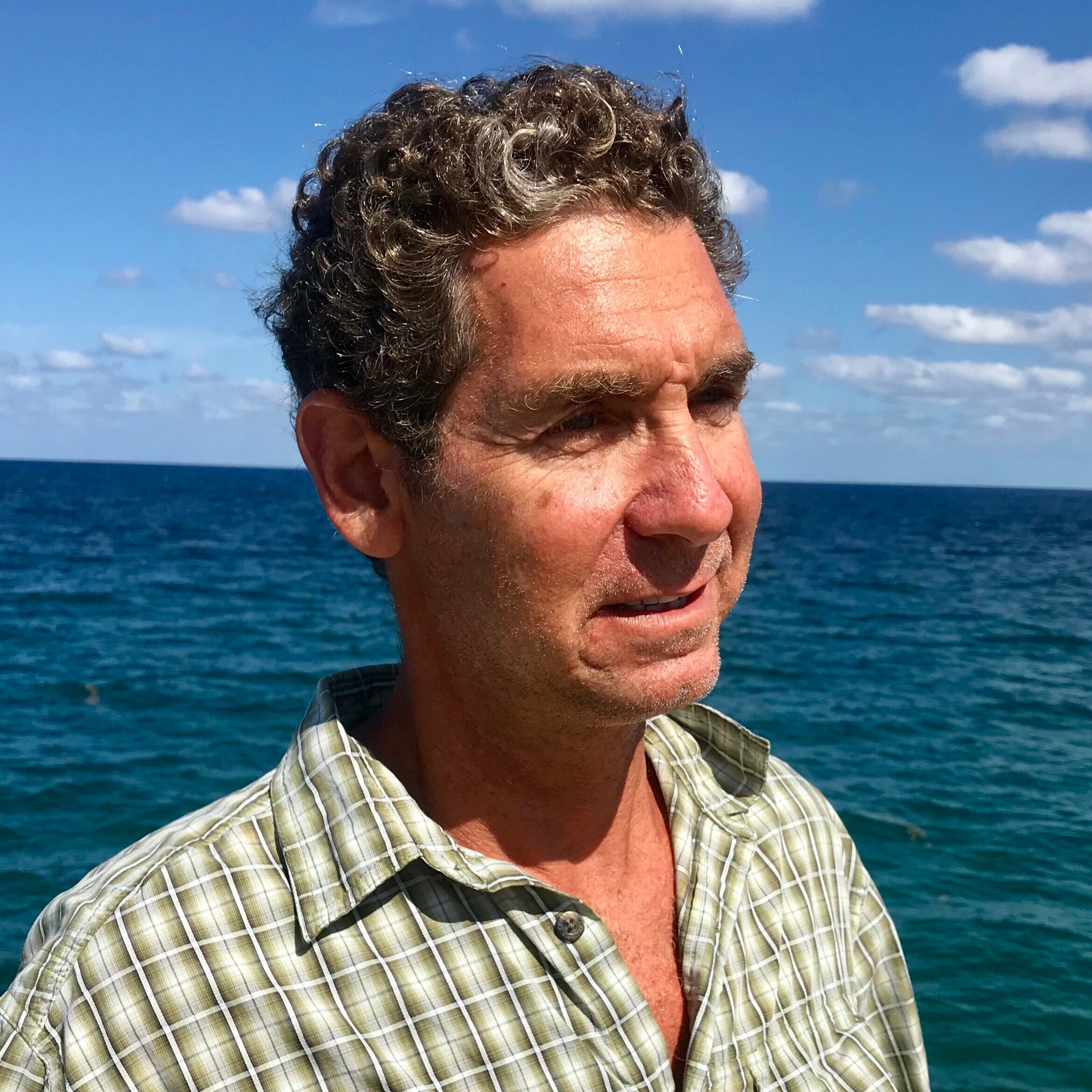When Oyster River Pages set sail over four years ago, who knew that the shores of 2016 would be ones we would never revisit? That the world we would return to would be almost entirely remade with all the parts of ourselves we thought we left behind? Metaphor fails. In four years of publication, ORP has become a ship, an anchor, and a lifesaver for readers, contributors, and publishers. We have turned to it to see ourselves—the good, bad, and ugly—and to find a vision of who we might become.
For reasons that need no explanation, this year we were captivated by stories about the possibility of life and love after a plague. And by tales of agency, power, and the abuse thereof. And by stories that remind us how hard it is to love, and how worthwhile; how necessary and delicious it is to laugh in spite of everything; how good it is to have someone to hold amid the chaos, even (or, perhaps, especially) if that someone is yourself.
Our fourth annual issue is our largest ever. Take your time with it. May it be a buoy to you in the tumultuous days to come.
Jonathan Freeman-Coppadge
Fiction Editor
As our fourth annual issue gets released into the world, it is being entered into one foreign, new, and unpredictable to all of us. In the course of a handful of months we have all witnessed and experienced the chaotic waves that can so quickly and easily pull us from the safety of shore, unbalancing and causing us to wonder how to recover from such a blow. These stories, these characters, these worlds created are glimpses and reflections of the realities that neighbor us; that resonate with a story of our own that follows and hovers like a shadow. As you read about the third grader, the husband in a thirty year marriage, the housekeeper, and the many other individuals who seem to not be fictitious at all but a person you once had been or knew, there will be that realization, that awakening, that warmness of comfort in your stomach one feels when embarking on a worrisome journey, knowing their fellow companion is only a few steps away: What lies ahead for us all is unknown, and for that reason, we are never alone.
Arlene Opio
Fiction Intern
As of late, tragedy has been at the forefront from gross racial injustices to a global pandemic and careless criminals masquerading as heads of state—a lethal concoction here and abroad leading to human rights abuses and mass death. Times like these demand art—stories, poetry, and visual art—to remind us of the beauty resisting within the darkness, persisting despite immeasurable suffering and loss. This year’s collection of stories offer us a necessary flicker of hope daring us to burn bright against the bleak odds.
It gives me great joy to help present these stories to the world. Shine on.
Eneida P. Alcalde
Emerging Voices Fiction Editor
The nature of the world has always been one of vivid, and uncertain change. Each day brings something new to leave its mark on history, tangling the threads of our lives. But at the core of the cacophony and chaos, there remains humanity. The small crises of the everyday that silhouette against the background of the fractured world. These moments weave the story of being alive, of the imperfect emotions that ruin and mold us again. All the moments of reverie, all the moments we feel we may never recover from. The heartbeat of the world thunders on, and we rise each day. We continue. We forever weave the tapestries of our stories into the blanket of the world. In this fourth installment of the annual issue, we invite you to lift up one of the threads, so heavy of life, and to look at the world through eyes anew.
Meggyn Keeley
Emerging Voices Fiction Intern
The Stories
A House Full of Spirits
Ope Adedeji
Once the strand of yarn goes around her feet, the rest is easy. My girl, Edima, is only a few weeks old. Her skin is pink and supple as a thumb. The yarn isn't cashmere soft, but it also isn't thick like the cheap yarn the old neighbor Alhaja wanted to sell me in exchange for a small tin of evaporated milk. Cashmere is expensive, and common yarn can cause allergic reactions. I dropped the tin by her foot mat—social distancing—and watched as her cat, a poor, hairless thing with wicked teeth, brought me two rolls of merino wool with thick strands instead…
Dissent
Jonny Baltazar Lipshin
After receiving the summons, the one wanting your daughter, I poured the Stanley to the brim and put our shit in the Bronco. Masha snoozin’, I mean my daughter dreamin’ in the next seat, bangs hanging like the slip of a sleep mask. Me? My thoughts keep time with the drone of the motor. Sweet Revenge on the stereo, a can of Kodiak on the center console. Dipping below the panhandle, I’m reminded that I was once one-to-watch. A big-hearted boy with a Texas twang. Blonde and blue. A gracile face that gave my ‘Merican frame a hint of humility…
Scarce adjusted in the tomb
mike karpa
Natalie’s hand squeezes mine under the desk when Daphne’s T.A. announces he is taking over Precursors of Modern American Poetry. And why. Grief counseling sessions will, of course, be available. I want to pull away, but I can see Natalie is on edge, so I squeeze back…
Everyone Needs a Place
Elizabeth Kirschner
My lover, George, lies to me about the smallest things. Now he's dying and I'm trying to forgive him and everyone else while painting objects.
I keep saying I've never been in love. That’s not quite true, but I keep describing the same things differently, as sailboats through the locks of reversed rivers or as streaks of red across the sky, visible only in one eye…
A Tragedy of Sons
Alex Robert Franco
Vacation started as we crossed over into Florida. All three of us—Thomas, our father, and I—felt it, our breath now easy and salt-flecked. Shoulders softened, hands that once gripped the wheel relaxed. The world outside recognized the change too. The trees grew squatter as their leaves widened, more and more blue sky breaking through. Even the dirt changed from red to dusty yellow. I rolled down my window to feel the wind whip my face. Between flashes of silver and blue and white, I spied roadside stands selling pool floats and beach towels…
The Lightning Jar
David B. Holton
A bullfrog booms out nearby in the field, punching right through the summer cicadas, way down low like a thrum, thrum, thrum in the center of my chest, and the cicadas are higher up, like a buzzing between my ears. I stop a moment and study the jar Daddy told me to carry—it’s one of those big Mount Olive pickle jars. Even though the jar is empty, I still smell the sour pickle smell coming up through the jagged holes that Daddy punched in the lid…
Maggie upstairs
jocelyn royalty
We have a lot of rain in April. The sky hisses like an open mouth, long tongue lapping across all of New Orleans, down rows of shotgun houses and side streets that become canals, through flooded squares that seep and squish. In the year I lived below Maggie, I watched her wade into Brechtel Park, mud caking her shins, and smile wildly up at the sky…
Strays
Ryan Fiordimondo
I am not sure what possessed her to abduct me when she did. She had visited me countless times on that same street corner, occasionally gifting me scratches on the head or strokes down the back, cooing and chirping before disappearing down the street. Maybe she was feeling particularly lonely, or maybe I looked particularly helpless. Whatever her reasons, she bent and scooped and swaddled me in the bottom of her hoodie, and I was off…
Night Music, 1933
Trudy Lewis
The classroom glowed with the golden light of late September—too bright, as far as Lotte was concerned. She preferred the gloomy days, when she could sit in the corner and sketch her classmates or read her book undetected. The whole school vibrated with an overabundance of yellow—the pine desks, the jonquil blinds, the fall colors of the lindens outside the window, and the thick blonde braids of Gerta, the Christian girl who had displaced Lotte in Hilde’s affections. There was such a thing as too much clarity, and light could be as confounding as shadow…
A brief murmuration
bill bruce
Mornings are always the same because no two are ever alike. Not even close. Given that waking thought, voila: your eyes open with the hushed anticipation of a stage curtain.
The orchestra tunes: a dusty ceiling fan takes its turns swaying and wobbling. The orchestra settles: ivory sheers breathe in and out on either side of the open window. The orchestra readies, poised: long shadows reach across the bedroom and climb the far wall where Lebron drives to the basket. Tap, tap, tap; on cue, all of life slowly rotates toward the sun…
Cold Bouillabaisse
Navya Kaur
It is a common misconception that all poets are gifted with a Superior Sight––eyes that can see past the shallow and obvious to spot a Truth others cannot discern. We often attribute a certain veracity to our eyes, making assumptions on the visuals they see, not understanding they only see part of the picture. But if eyes were truly so legitimate, then Monsieur Clotaire would never have found himself sitting inside a publisher’s room with a manuscript of translated Braille poems in his hands…
no machetes in america
karen halvorsen schreck
Severino Kwizera splashed disinfectant into the big yellow bucket on wheels, then hoisted the bucket into the metal utility sink. A clockwise turn continued to be his first impulse, but he thought again—righty, tighty, lefty, loosey—and twisted the spigot to the left. Clean water gushed effortlessly from the tap…
Caregiver
Lance Milham
People didn’t call Tommy. He didn’t have much other than Mom for obligations, so he kept his ringtone off. That’s why he missed Brenda’s call. She left a hurried message, that she was okay, and she was hoping to talk with him after work. Said she’d be working a full shift. He wondered what she wanted to talk to him about. Her voice put him back in Cali. He wondered if she was still serving at Izzy’s….
A Visit to General Lim Street
Monica S. Macansantos
Celeste’s handwriting had a neat, elegant flourish to it, making Gabriel suspect she had gone to one of the fancier Catholic schools in Manila, where the nuns insisted on leaving an imprint of civility upon their students’ penmanship. The cross of her T swept forward into space, as though to provide shelter for the letters that fell underneath it. Celeste Chan. 14 Jungletown Road. A simple address that served as an opening into a stranger’s life…
Double Singles
Giacomo ‘Jack’ Ortizano
She stepped off the bus on the East Side, the better part of the city where the better people lived. An ordinary-looking eleven-year-old girl carrying schoolbooks in an ordinary-looking, oversized tote bag. She appeared as if she belonged there, though she did not feel that way. No, she thought of herself as an outsider entering hostile territory, where people of her ilk are routinely used and then discarded the way some people flush a bloody sanitary pad down the toilet…
Date Night
Christopher Linforth
In the bathroom, our babysitter comes at us with tincture of benzoin. She unscrews the lid and holds the glass bottle above her head. The amber liquid swishes inside, spills over the lip. We cower behind the shower curtain. I see you, she says. As she pulls back the curtain, we turn the showerhead her way, spray her face with steaming hot water. Our babysitter shrieks that she will call our parents. She hates that we’re twins, but not twins, the pair of us almost identical to strangers. Our spindly bodies look pale, rarely exposed to the outside world…
how i became friends with an idiot by marni graham
kimm brockett stammen
A flaming red box hung on the wall in the main hallway of my elementary school. Above its red lever, white painted letters taunted:
FIRE ALARM
PULL
You weren’t supposed to do what it said. We all knew that. But the box was low on the wall, the lever right under our fingers as they skimmed the green cement block on the way out to recess…
Pampers
David Chura
I wonder sometimes, sitting in the waiting room bullpen for my babies’ visit, what my life would’ve been like if mommy hadn’t run out of Pampers. Maybe if Camille had got toilet trained just a few months earlier, mamita would still be around, and I wouldn’t be nineteen, doin’ two years for some shabby grab-and-run at Pop’s Liquor Store—two whole years—in this shithole jail, having to see my two precious daughters in that dirty visiting room, afraid to let them touch anything or run around, even though little Loretta can’t wait to show her papi how she can walk now…
to the king of fruits
annie trinh
I remember the day I saw you.
I came with my parents, wearing a worn-out cotton t-shirt and faded blue jeans. I was nervous. My Grandpa decorated the house with tiny kumquat trees and draped the ceiling with red paper lanterns and banners saying, “Welcome to the Year of the Rat.” And everyone was dressed elegantly: silk gowns made from the finest cocoons of the mulberry worms, jade necklaces and bracelets dug from the caves of Vietnam hanging from their wrists and necks while the gemstones clicked and clanked as they showed their status…
They
Madeline Furlong
Kat is disappearing. It starts on Monday, when they are too quiet—quiet when they wake, quiet when they arrive home, quiet when we brush our teeth at our Jack and Jill sinks.
“Do you see me?” their reflection asks me in the mirror.
“Every bit,” mine responds.
But Tuesday they hunch their shoulders up against the world, and I swear they look smaller, somehow, like they are sinking into themselves. Or the earth…
Only if You Want to Hear
Jamie Collins Kahn
By the time Parker and Kegan reached their junior year at their all-girls Catholic high school, they had already broken up twice. They couldn’t explain fully to anyone why they stopped being such close friends on a whim. This time, though, they were both sure that it would stick.
They were the only gay people that they knew in their town. Not that they ever thought to tell anybody. They couldn’t. People suspected anyway, they started rumors, called them dykes and freaks in the school hallways…
Dandelions of the field and the daisies thereof
andrew furman
So I was just about to tell Joan that I was leaving—we were eating our breakfast oatmeal at the granite bar in the kitchen (we ate a lot of oatmeal those days)—when she suggested between spoonfuls that we finally break down and start watching all seven seasons of that popular fantasy TV series before the final, eighth season dropped. I said sure (I said sure a lot those days) and resolved that I’d tell her I was leaving after we completed our media adventure. Sitting through the seventy or so hour-long episodes, I reasoned, would at least give me time to work out exactly how to break this news to my wife of nearly thirty years, news that I knew would shock and upset her…
what i didn’t take
rhienna Renèe guedry
I thought of two things when I found out that the Zimmerman’s home had gone down in flames: first, that I would’ve saved my hour and forty-five minutes Q-tipping the dust off each picture frame on the mantle if I had known the entire house would become dust itself just an afternoon later, and secondly, that I wish I had stolen something other than their silver-plated wine stopper shaped like a starfish…
the year of the bat mitzvah
jonathan mendelsohn
War may be hell, but the year of my bar mitzvah…well, the Jews don’t believe in hell, but there is a kind of netherworld mentioned in different parts of the Bible, a place where “the deceased”, according to MyJewishLearning.com, “… cut off from God and humankind, live on in some shadowy state of existence.”
That was me.
In grade seven…
migratory patterns of birds
jessica hertz
She had grown used to the middle seat. He needed the window—needed to lean against the plastic wall of the plane, needed to open and close the shade at will, needed to press his forehead against the cool pane when he got overheated. She felt it was an equal trade since she needed things too: to rest her head on his shoulder, to feel the reassuring weight of his hand on her knee during take-off, to share his earbuds as she drifted off to sleep…
Fish Out of Water
Natalie Harris-Spencer
The Bio Hunters are coming for us. They’ve been scouring the waters for our species, seeking out our cobalt-blue scales to trade at the Flesh Markets. They’ve traced our shoal—another Fish from a rival shoal betrayed us—and now we’re forced to swim for our lives. We have an escape plan: New York City is accepting our species for a limited time through a “door ajar” policy. In school, we completed the New York City virtual immersion program that took us through Central Park, got us hooked on all the good sitcoms and Christmas movies, learned why the Big Apple is the Greatest City on Earth…
After the End
Joel King
The sun is setting as he shuffles forward down the road, kicking up dirt and grime with his feet, lifting them just enough to make progress. His destination registers dimly in his head, flickering like a dying light bulb, threatening to burn out. Several times, he stops, backpedals a little, and restarts, the destination coming back alive just long enough for him to grab onto it and proceed.
His conception of time has eroded, but something in his mind tells him that he’s been like this for at least half a year, whatever that means…






















































































































































